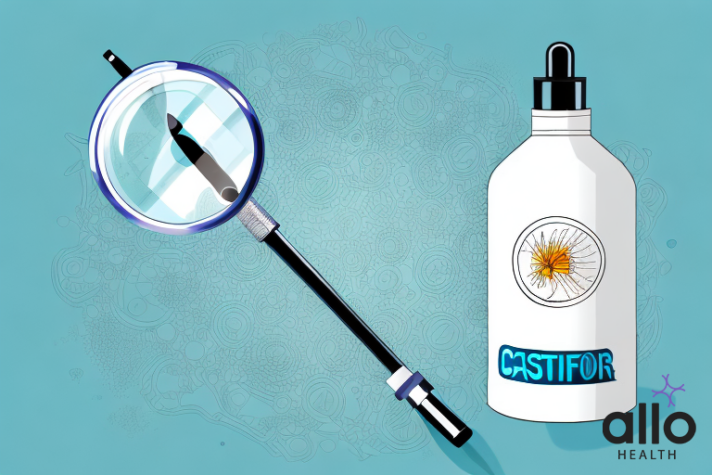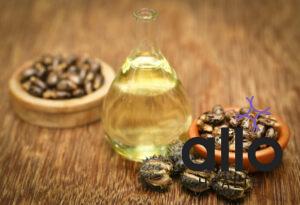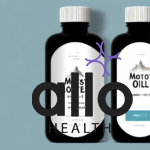How Castor Oil Can Help Treat Peyronie Disease

Allo Health is dedicated to personalized well-being, offering support and trusted information tailored to individual health goals. The platform emphasizes human-generated content, led by a distinguished medical team of experts, including physicians and sexual health specialists. Their commitment to credibility involves rigorous fact-checking, authoritative research, and continuous updates to ensure accurate, up-to-date information. Allo Health's unique approach goes beyond conventional platforms, providing expert-led insights and a continuous commitment to excellence, with user feedback playing a crucial role in shaping the platform's authoritative voice.

Dr. Warisha holds an MBBS degree from GMERS Medical College, Ahmedabad. She has an in depth experience on sexual and reproductive health and rights.
Why This Was Upated?
Our experts continually monitor the health and wellness space, and we update our articles when new information became available.
Updated on 26 December, 2023
- Article was updated as part of our commitment to diversity, equity, and inclusion.

"The following blog article may discuss medical treatments and interventions. However, it is important to note that the information provided is for general educational purposes only and should not be considered as a substitute for professional medical advice, diagnosis, or treatment. Always seek the guidance of a qualified healthcare professional for personalized medical advice.
Book consultation
Medical treatments are complex and should be tailored to individual circumstances. The information presented in this blog may not be applicable to everyone, as each person's medical condition, history, and needs are unique. Only a qualified healthcare professional can evaluate your specific medical situation, consider relevant factors, and provide appropriate recommendations for diagnosis, treatment options, and monitoring.
It is crucial to note that self-diagnosis, self-medication, or relying solely on the information provided in this blog for treatment decisions can have serious health consequences. "
Are you or someone you know struggling with Peyronie’s Disease? Peyronie Disease is a condition that affects men, causing painful and uncomfortable curvature of the penis. Many are available, but have you ever considered using castor oil? In recent years, castor oil has gained traction as a natural remedy for this condition, and for good reason. In this article, we dive deep into castor oil treatment for peyronie disease, how castor oil works, and the benefits of incorporating castor oil into your treatment plan.
What Is Castor Oil?

Castor oil is a vegetable oil derived from the seeds of the castor plant (Ricinus communis). It is commonly used for skin and hair care, has potential laxative effects, and has anti-inflammatory and analgesic effects.
What is Peyronie’s Disease?
Peyronie Disease is a condition that causes fibrous scar tissue or fibrous tissue to form in the penis, leading to severe curvature or bending during an erection. This can cause discomfort, pain, and even difficulty during sexual activity. The exact cause of Peyronie Disease is unknown, but it is believed to be caused by injury or trauma to the penis, genetic factors, or an autoimmune disorder. The degree of curvature varies from one individual to another.
Symptoms:
- Pain or discomfort in the penis
- Difficulties in achieving or maintaining an erection, contribute to erectile dysfunction
- Development of fibrous plaque or scar tissue beneath the skin of the penis
- Reduction in the length of the penis due to the curvature and plaque formation.
- Noticeable curvature of the penis during an erection
How Does Castor Oil Help With Peyronie’s Disease?
Castor oil is believed to aid in Peyronie’s Disease by reducing inflammation and softening plaque spots, leading to a decrease in penile curvature. It has potential anti-inflammatory and analgesic properties, which can alleviate discomfort associated with the condition. Additionally, massaging castor oil into the affected area may improve blood circulation, contributing to symptom relief. Castor oil helps to treat Peyronie’s disease by the following properties:
Castor Oil Treatment for Peyronie’s Disease: Castor oil has been suggested as a potential remedy for Peyronie’s disease due to its believed anti-inflammatory and analgesic properties. Peyronie’s disease is characterized by penile curvature during an erect penis and is often accompanied by erectile dysfunction. The disease is caused by excessive collagen production, leading to plaque spots in the penile tissue, resulting in painful or challenging sexual intercourse.
Advocates Believe in its Benefits: Advocates of castor oil believe in its anti-inflammatory and analgesic properties, aiming to alleviate the pain associated with Peyronie’s disease and potentially soften the plaque, thus reducing penile curvature. Some also suggest that massaging the affected area with castor oil could improve blood circulation, offering symptom relief.
Improved Blood Circulation: When applied topically, castor oil can help improve circulation, reduce inflammation, and break down scar tissue. It also has antibacterial and antifungal properties, which can help prevent infection and further inflammation. It is a good remedy for penile curvature.
Softening of Plaque: Advocates suggest massaging the affected area with castor oil may help soften the plaque spots in the penile tissue. This could potentially lead to a decrease in penile curvature over time.
Promotes Tissue Healing: Castor oil stimulates the production of collagen, which plays a crucial role in repairing tissues. It helps in healing the process of penile tissue affected by the disease.
Anti-Inflammatory Properties: Inflammation plays a significant role in Peyronie Disease, where castor oil shines. When applied directly to the affected area, the anti-inflammatory compounds in castor oil help reduce swelling and pain. In fact, recent studies have shown that castor oil may be just as effective as conventional treatments like injections or surgery.
Cost-effective: Another benefit of using castor oil to treat Peyronie disease is that it is a cost-effective option. Traditional treatments for Peyronie disease can be expensive and may not be covered by insurance. On the other hand, Castor oil is relatively inexpensive and can be easily purchased at most health food stores or online.
Castor Oil as a Natural and Safer Remedy: Castor oil is a natural remedy, which means it is free from harsh chemicals and synthetic ingredients that can cause unwanted side effects. This makes it a safer option for those sensitive to certain medications or treatments. However, it is important to note that castor oil should not be ingested and should only be used topically as directed.
Reduces Plaque Buildup in the Penis
Castor oil reduces plaque buildup in the penis through the following properties:
Unique Anti-inflammatory Properties: Castor oil contains a unique fatty acid called ricinoleic acid, which is thought to be responsible for its anti-inflammatory properties. This acid can help reduce inflammation in the penis and break down the plaque that leads to curvature. By improving blood flow to the area, castor oil may also help prevent further plaque buildup.
Antimicrobial Properties: Castor oil also has antimicrobial properties that can help fight off infections in the penis. This can be especially beneficial for men who have undergone surgery or have a weakened immune system.
Improves Sexual Health: Furthermore, castor oil has been shown to have a positive effect on overall sexual health. It can help increase libido and improve erectile function, which can lead to a more satisfying sex life. Regular use of castor oil may also help prevent other common penile issues, such as dryness and itching.
Limited Scientific Evidence: However, it is crucial to note that scientific evidence supporting castor oil’s effectiveness as a standalone treatment for Peyronie’s disease is limited. Medical treatments for Peyronie’s disease may involve medication, physical therapy, or, in severe cases, surgical intervention.
How to Apply Castor Oil for Treating Peyronie Disease?

If you are interested in using castor oil to treat your Peyronie Disease, it is important to apply it correctly.
1. Effective Application Techniques: Start by cleaning the affected area with warm water and mild soap. Then, use a cotton ball or swab to apply the castor oil directly onto the penis, covering the affected area completely. Apply castor oil, particularly on the scar tissue and plaque spots. The oil softens and liquefies the hard tissues.
2. Massaging: Gently massage the oil into the skin for a few minutes, then let it sit for at least 30 minutes before washing it off. It takes around 12 weeks to see improvement. Apply the oil every night for good results. The results may vary from individual to individual.
Precautions and Tips:
Patch test: Castor oil is generally safe to use topically, but there are a few things to keep in mind. Always test a small patch of skin before applying castor oil to larger areas. If you experience any allergic reactions, stop using it immediately and consult your doctor. Also, remember to clean the affected area before and after applying the oil to prevent infection.
Avoid Ingestion and Pregnancy Considerations: It is important to note that castor oil should not be ingested as it can cause severe gastrointestinal issues such as nausea, vomiting, and diarrhea. Additionally, pregnant women should avoid using castor oil as it may induce labor. If you have any concerns or questions about using castor oil to treat Peyronie’s disease, it is best to consult your healthcare provider before starting any treatment.
Integrating Castor Oil in Your Daily Life
- Quality Matters: Use pure, organic, and cold-pressed castor oil for the best results in your daily routine.
- Massage for Circulation: When applying castor oil, massage it into the skin for a few minutes, aiding in improved circulation.
- Patience is Key: Improvements may take time, so be patient and consistent with castor oil usage to reap its natural benefits.
What Are the Causes of Peyronie’s Disease?
The exact cause of Peyronie’s disease is not known, but it is caused by variety of factors like repeated injury, heredity, connective tissue disorders, age, smoking and prostate surgery.
Collagen Buildup: One of the main causes of Peyronie’s disease is the excessive buildup of collagen, a fibrous protein, in the penile tissue. This leads to plaque or scar tissue formation, resulting in penile curvature.
Trauma or Injury: In some cases, Peyronie’s disease can be triggered by trauma or injury to the penis. This may occur during sexual activities or due to an accident.
Genetics: There might be a genetic predisposition to developing Peyronie’s disease. If someone in your family has had the condition, you may be at a higher risk.
Age: Peyronie Disease is more common in men over 40, as well as certain medical conditions such as diabetes and high blood pressure. Smoking and excessive alcohol consumption may also increase the risk of developing Peyronie Disease.
Other Health Conditions: Certain health conditions, such as Dupuytren’s contracture (a cordlike thickening across the palm that pulls the finger inward), may also increase the risk of developing Peyronie’s disease.
Inflammation: Chronic inflammation of the penile tissue can contribute to the development of Peyronie’s disease.
Effectiveness of Castor Oil for Peyronie’s Disease: A Research Review
The effectiveness of castor oil for Peyronie’s disease are:
Early Promising Findings: Research on castor oil’s efficacy for Peyronie’s Disease is in its initial stages, showing positive results.
Study on Rats: A Journal of Traditional and Complementary Medicine study observed that castor oil improved erectile function and reduced plaque buildup in rats with Peyronie’s Disease.
Study on Human Subjects: Another research in the International Journal of Impotence Research found that castor oil reduced pain and improved penile curvature in most participants.
More Research Required: Although promising, further studies are needed to fully understand the potential benefits and risks of castor oil for Peyronie’s Disease.
Consult Healthcare Provider: It is advised to consult a healthcare provider before trying castor oil or other alternative treatments for this condition.
Other Options
Several treatment options are available for Peyronie’s Disease, including medication, surgery, and penile traction devices. Medications such as collagenase injections and oral vitamin E supplements may help to reduce the curvature of the penis, while surgery may be necessary in more severe cases. Penile traction devices, worn for several hours a day, may also help straighten the penis over time.
Key Takeaway
- Peyronie’s disease is a condition that causes the formation of scar tissue inside the penis that leads to a curved penis
- Castor oil is a natural remedy that may help with Peyronie’s Disease due to its potential anti-inflammatory and analgesic properties.
- Advocates suggest that castor oil can reduce pain, soften plaque spots, and improve blood circulation in the affected area.
- While castor oil shows promising results, more research is needed to fully understand its effectiveness as a standalone treatment.
- Castor oil should not be ingested and should only be used topically as directed.
- Always consult a healthcare provider before using castor oil or any alternative treatments for Peyronie’s Disease.
Frequently Asked Questions:
Q. Can Castor Oil Straighten a Penis That Is Curved?
A. Castor oil has been suggested as a natural remedy for Peyronie’s Disease due to its potential anti-inflammatory properties, but its effectiveness in straightening the penis is not proven. If you are experiencing penile curvature or Peyronie’s Disease, it is essential to consult with a healthcare professional for appropriate evaluation and treatment options.
Q. Are There Any Side Effects of Using Castor Oil for Peyronie’s Disease?
A. While castor oil is generally considered safe for topical use, some individuals may experience skin irritation or allergic reactions. However, when used as directed, the risk of side effects is minimal. It is essential to do a patch test before applying castor oil to larger areas and to discontinue use if any adverse reactions occur.
Q. How Long Does It Take to Manifest the Effects of Castor Oil?
A. The effects of castor oil on Peyronie’s disease may vary from person to person. Some individuals may start to notice improvements within a few weeks of regular use, while others may take several months to see significant results.
Q. Can Castor Oil Be Combined With Other Peyronie’s Disease Treatments?
A. Yes, castor oil can be combined with other Peyronie’s disease treatments. It is essential to consult with a healthcare professional before incorporating castor oil into your treatment plan to ensure it complements other treatments effectively. Castor oil as a complementary therapy may help manage symptoms and improve overall health, but it should not replace traditional medical treatments prescribed by a healthcare provider.





































